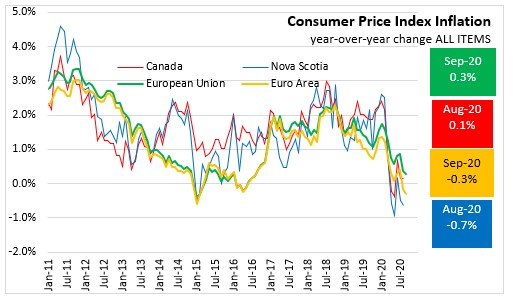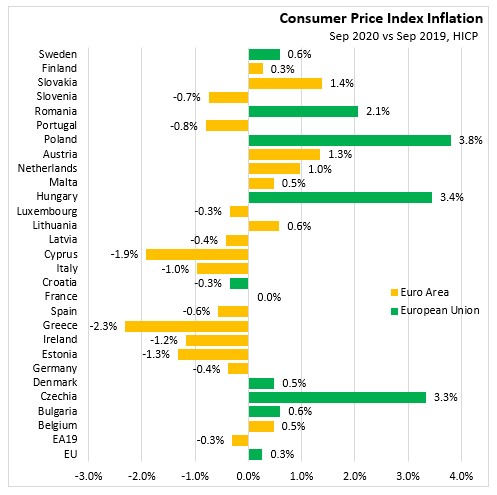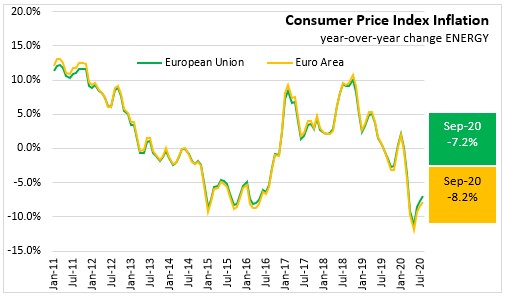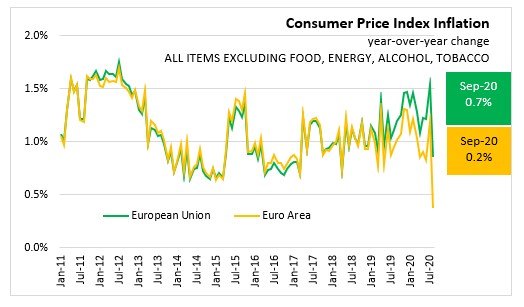The Economics and Statistics Division maintains archives of previous publications for accountability purposes, but makes no updates to keep these documents current with the latest data revisions from Statistics Canada. As a result, information in older documents may not be accurate. Please exercise caution when referring to older documents. For the latest information and historical data, please contact the individual listed to the right.
<--- Return to Archive
For additional information relating to this article, please contact:
October 16, 2020EU AND EURO AREA CONSUMER PRICE INDEX, SEPTEMBER 2020 The Euro Area year-over-year inflation rate declined to -0.3 per cent in September 2020, following a -0.2 decline in August. European Union annual inflation increased 0.3 per cent in September, down from the 0.4 per cent annual gain registered in August 2020. European Union data for this report is now for the 27 member countries of the European Union, not including the UK.

Among EU Member States, the highest annual inflation rates were recorded in Poland (3.8%), Hungary (3.4%) and Czechia (3.3%) while the lowest year-over-year inflation were reported in Greece (-2.3%), Cyprus (-1.9%) and Estonia (-1.3%).
Compared with August, annual inflation rates fell in thirteen Member States, remained stable in seven and rose in seven.

Food prices in the Euro Union increased 1.9 per cent annually while food prices in the Euro Area were up 1.5 per cent compared to September 2019.

Energy inflation (September 2020 vs September 2019) continued to rebound in September. Annual energy inflation was at -7.2 per cent in the European Union and -8.2 per cent in the Euro Area in September.

Excluding the impacts of volatile energy, food, alcohol and tobacco prices year-over-year inflation increased to 0.7 per cent for the European Union and increased to 0.2 per cent for the Euro Area.

Source: Eurostat-News Release
<--- Return to Archive